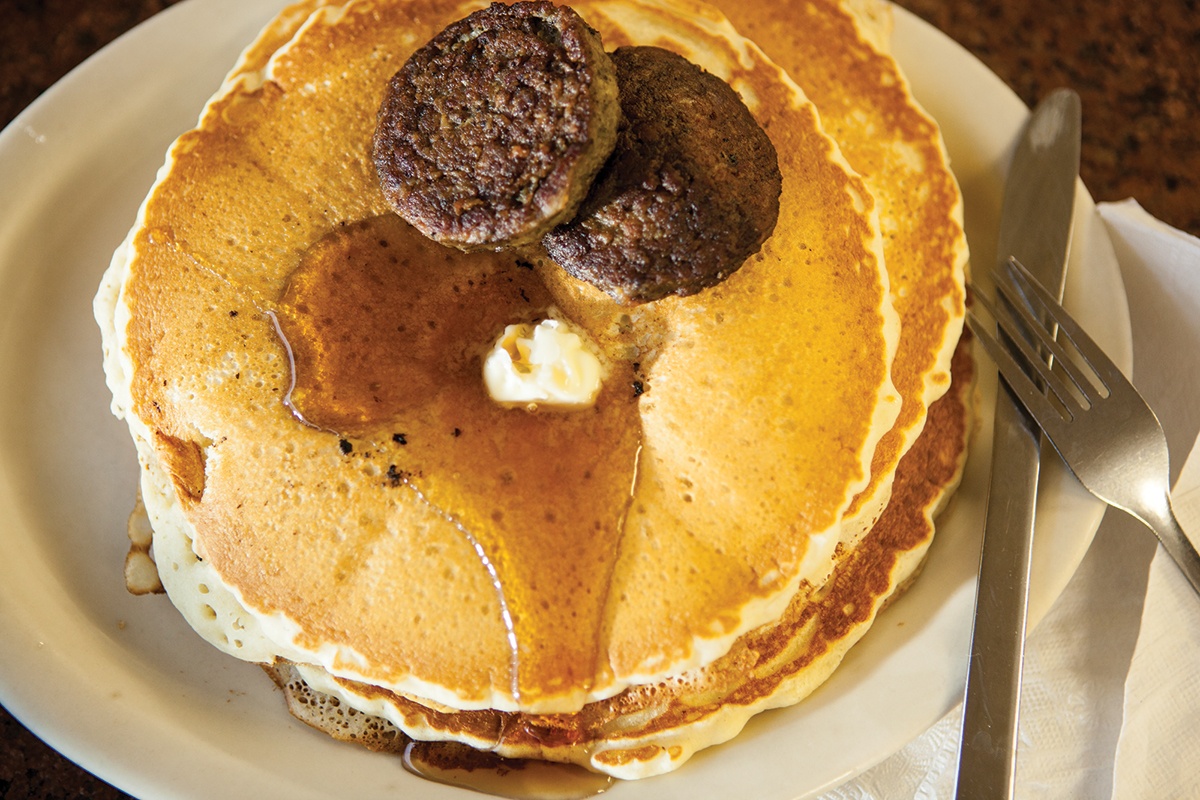Pop’s Place in Denison has been open for only 15 minutes on this cold and gray winter morning, but a third of the tables are occupied. Waitress April Arrington fills coffee cups, takes orders and scoots from table to table. “The usual?” she asks a customer. “Hi, sweet pea,” she says to another.
In the next half hour, most of the dozen or so red-checked oilcloth-covered tables in the A-frame building off Texas Highway 91 are full. A man in a camouflage jacket drinks coffee and checks his phone messages. Two other customers talk about families and plans for the weekend as they walk to the cash register. Two women dig into omelets, each with pancakes on the side.
The world may be increasingly impersonal and our lives more frenzied, but there are places left where that doesn’t matter. Stop into any one of the breakfast joints scattered around Texas, from Van to Lubbock and from Wichita Falls to the Hill Country, and you’ll soon understand why they have stubbornly survived despite the 21st-century odds against them.
“We need more places like this,” says Jan Rush of Tom Bean, eating a ham and cheese omelet with her sister, Anita Hudson of Denison. “It’s just more homey, more cozy and more comfortable.”
Adds Hudson: “It doesn’t matter what kind of mood you’re in when you get here, you leave happy. They really work at it here.”
If this seems too romantic for places that just serve bacon and eggs, remember what was lost in communities when the local drugstore vanished and the corner gas station disappeared.
“It seems like the mom-and-pop business is always overshadowed by the chains,” says Zavonna Lowery, who owns Pop’s with her husband, not surprisingly known as Pop. “But we know the way we run our business means more for the community than a chain. Our customers give to us, and we give back to the community.”
You’ll encounter this common refrain from the people who own these restaurants: Neighborhood places offer a community spirit that isn’t easy to explain. Experts such as the author Jane Jacobs, who wrote extensively about the importance of neighborhood preservation in communities, would argue that places like the Blue Bonnet Cafe in Marble Falls, the Ranch House in downtown Lubbock or the Dinner Bell in the East Texas town of Van are much more important than they might seem at first glance.
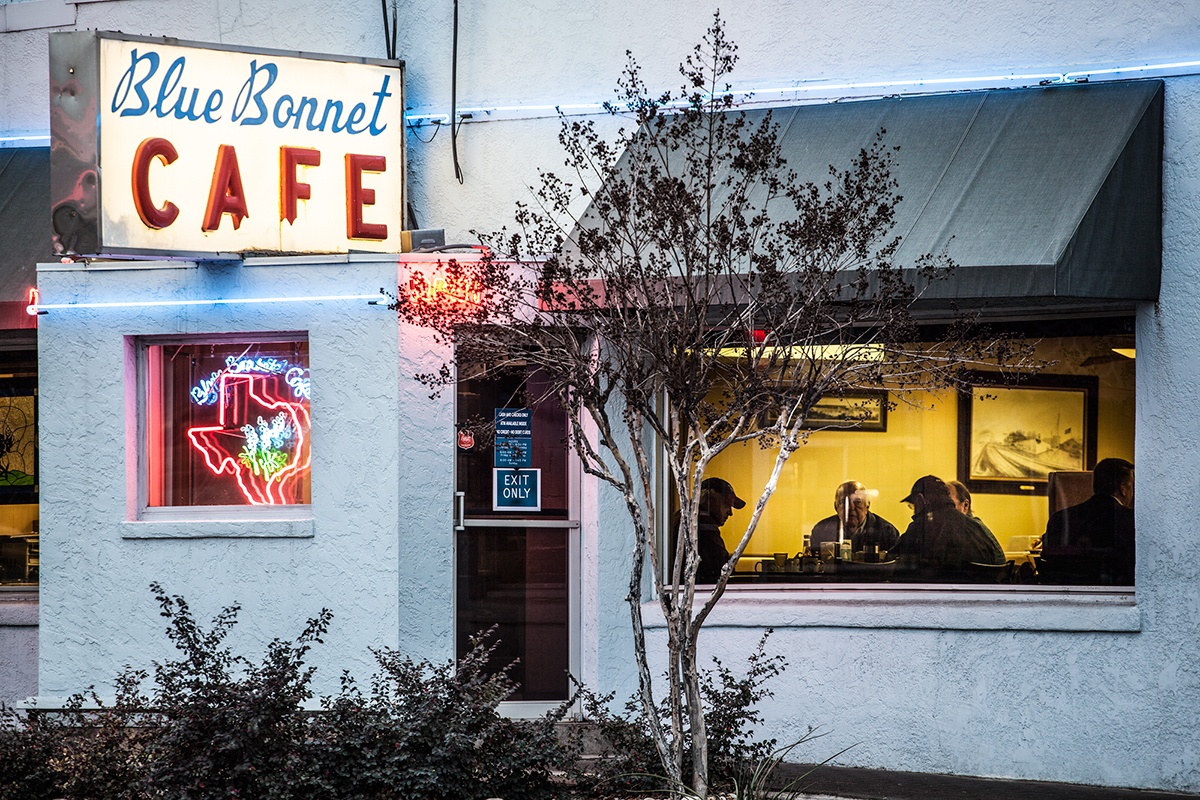
Blue Bonnet Cafe serves breakfast, as it has in Marble Falls since 1929.
Kenny Braun
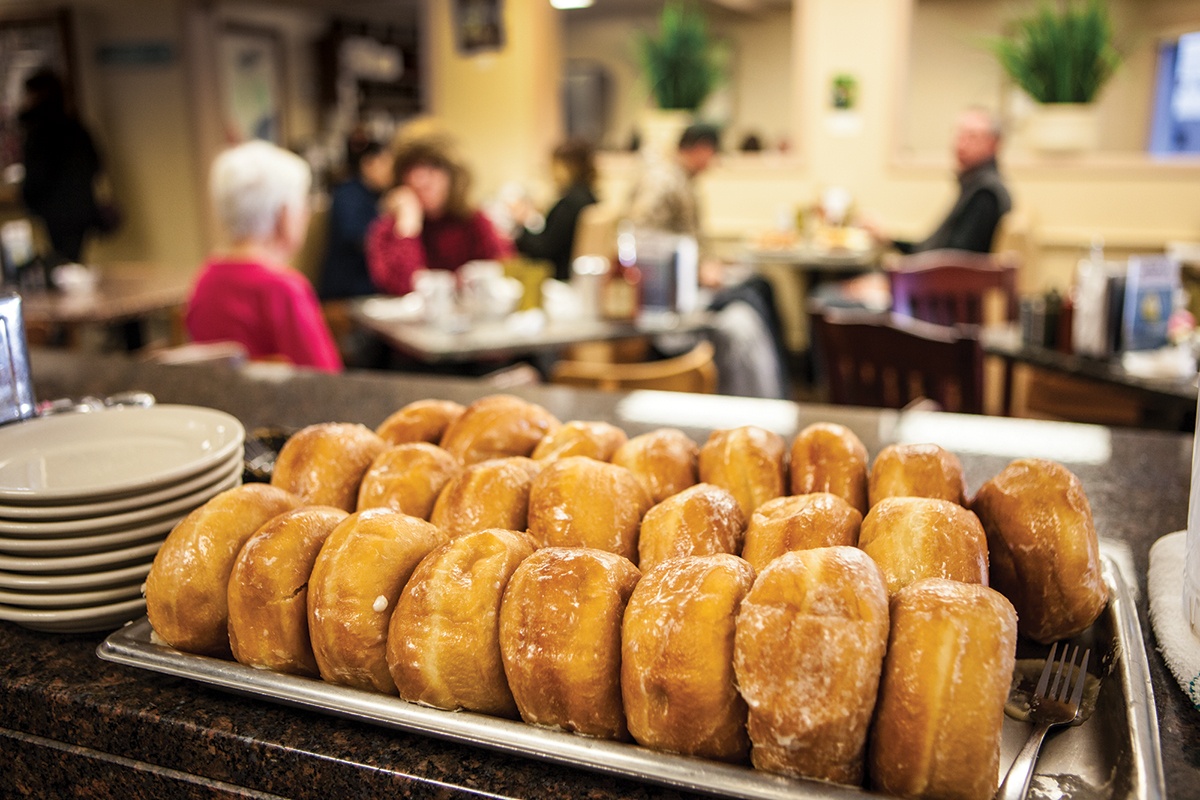
Breakfast, including homemade donuts, is served all day at the Blue Bonnet Cafe.
Kenny Braun
First, they really do know you. Each day of the week brings its particular customers, and it’s a rare day in many places when someone comes in whom the people who work there—or other customers—don’t know. And if a regular doesn’t show up on his or her appointed day, they know that, too.
“We have watched so many of our customers grow up,” says Andrea Bergstad, whose parents, Jerry and Lolita, opened Lolita’s in Waco in 1983. “First, they came in by themselves; then they got married and came in with their spouses; and then they came in with their kids. It just keeps on going.”
At the Ranch House, owner Ralph Musselman says it’s not unusual for some older customers to leave their money at home when they come in for breakfast. So his employees call someone in the customer’s family to straighten everything out. “It’s almost like we’re part of their family,” Musselman says, “so we’re going to take care of them.”
And the employees are more likely to be regulars as well. The typical U.S. restaurant turns over almost two-thirds of its employees a year, according to the National Restaurant Association, but it’s not unusual for employees at these breakfast landmarks to stay for years. And years.
Rhonda Shelly has worked off and on at the Dinner Bell since 1977, and owner Debbie Stone’s family has had the business since the 1960s. The average tenure at the Blue Bonnet is eight years, and 30-year employees are not unusual there or at the Ranch House.
“These restaurants are anchors in their community,” says longtime Texas food writer and author Amy Culbertson, who grew up in Lampasas. “Before McDonald’s and before Dairy Queen, these were often the only restaurant in town. They provided jobs for women who had to work outside of the home when there weren’t many places for them to work, and they fed the men who didn’t have a home to eat in.”
It’s not surprising, then, that chains are the enemy for these places. Chains can out-price, out-locate and out-market even the best-run mom-and-pop shop. The Blue Bonnet, founded in 1929, has a couple of billboards on Texas Highway 281 outside of Marble Falls, and that’s about as marketing-intense as these places get. They can only fantasize about IHOP’s multimillion-dollar advertising budget or Starbuck’s worldwide name recognition.
“When the economy struggles, we struggle,” says Pop’s Lowery. “The first thing people cut out is restaurant meals, and we don’t have corporate support to help when business is bad. And we can’t run specials like the chains do, where they price things at cost.”
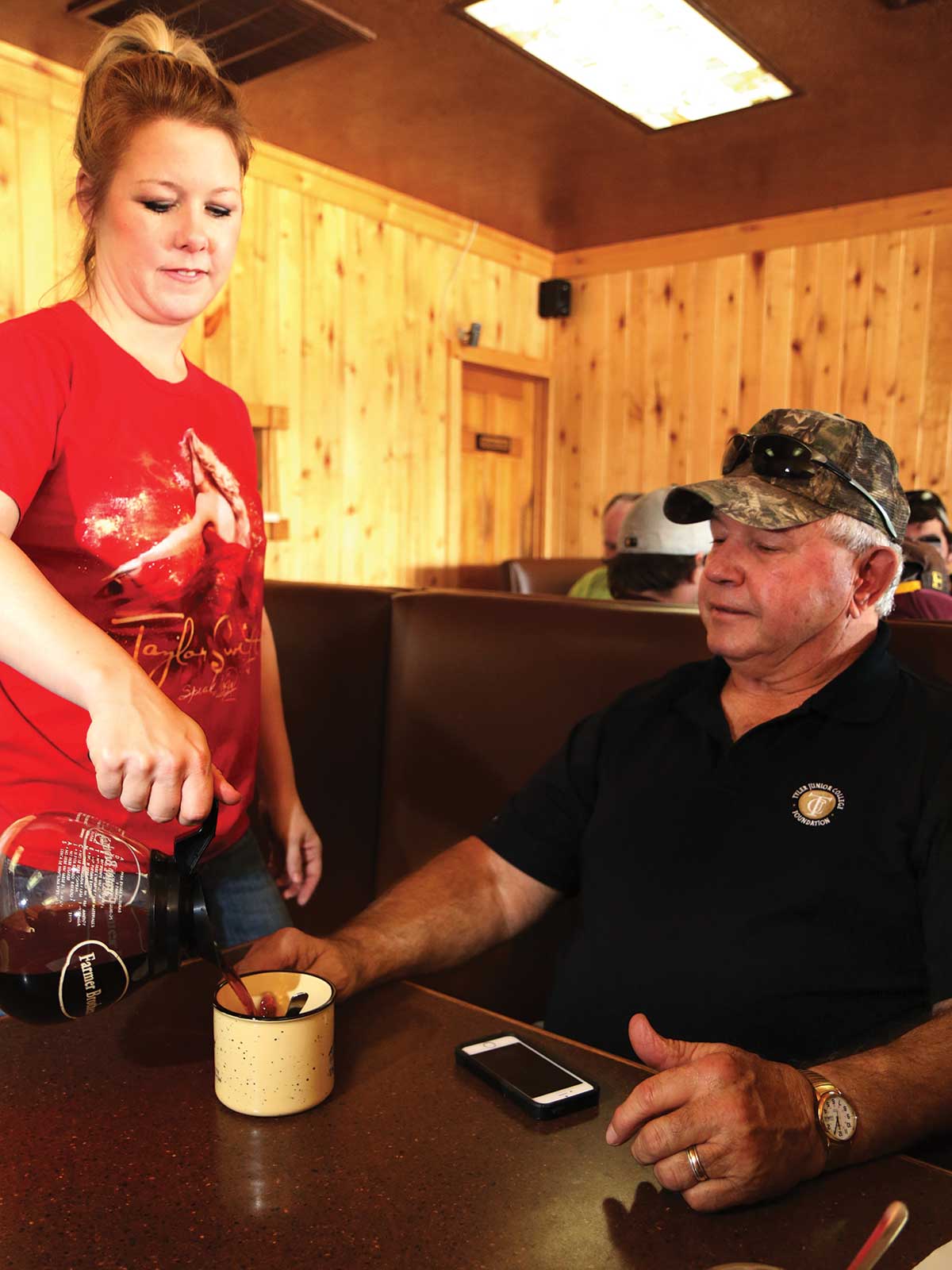
Dinner Bell waitress Carrie Blackmon pours another cup of coffee for regular customer Johnny K. Thomas. Both are lifelong Van residents.
Randall Maxwell
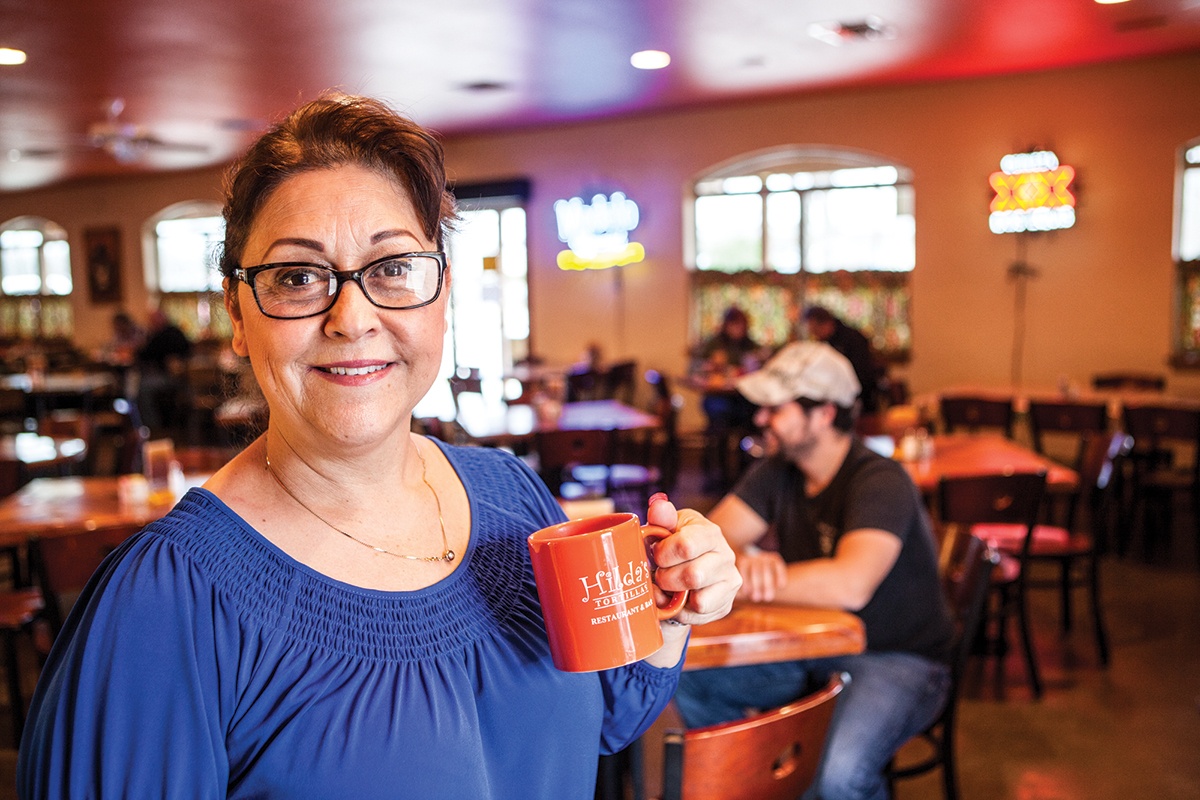
Hilda Bopp has been in the restaurant business for more than 30 years.
Kenny Braun
Another hurdle? Industry surveys point out that fewer Americans eat a traditional breakfast now, down from 90 percent in the 1970s to about 75 percent now. It’s no coincidence that the heyday of the breakfast place started to slide when McDonald’s began serving breakfast nationally in the U.S. in 1977. Few people take time to wait for table service, drink multiple cups of coffee and mop up the last bit of egg yolk with a corner of toast.
“You really have to love what you do,” says Dave Plante, who manages the Blue Bonnet for John and Belinda Kemper and is married to their daughter, Lindsay. “You have to feel really strongly that you want to share what you’ve got with other people. Because if it’s Thanksgiving week, and you haven’t been home because you’re working, you’re going to start to wonder why you’re doing this.”
Hence the importance of regulars, who can account for 50 to 90 percent of a restaurant’s customers for breakfast. It’s much easier to do without marketing when you know exactly who is going to be there every morning, and that those customers talk you up every chance they get.
The most popular breakfast restaurant meal, experts say, is bacon and eggs. But don’t tell that to the customers who go to the Dinner Bell for the Jason Hash, an omelet with the ingredients layered on top of each other, eggs on the bottom; or to Pop’s for cinnamon-laced French toast; or Hilda’s Tortillas Restaurant & Bar in Fredericksburg, where they line up in the morning for breakfast burritos; or to the Blue Bonnet for chicken-fried steak and eggs.
That’s probably why so many of these places appeal to Texas sensibilities. It’s one thing to get a breakfast burrito at a hamburger chain; it’s something else entirely to get the Elephante at Lolita’s, a burrito as gigantic as its name, stuffed with sausage, eggs, cheese, potatoes, bacon and beans.
Besides, word-of-mouth promotion based on quality food is the best marketing a local breakfast joint can do. It gives them something unique to offer customers and helps them carve out a niche. Watch a chain restaurant commercial, and it’s about food piled high on a plate to look good. But waffles smothered in whipped cream and canned fruit doesn’t feel as much like home as biscuits and gravy at the Ranch House or pork chops and eggs at the Pioneer in Wichita Falls.
“These restaurants are small and personal, and they carry vestiges from a country life and an earlier day,” says Texas food writer and cookbook author Dotty Griffith.
Which is what breakfast should be about: It’s about starting the day, and what better way to do that than with food you can’t get anywhere else, served by people who are glad to see you?
Good beats fast any day.
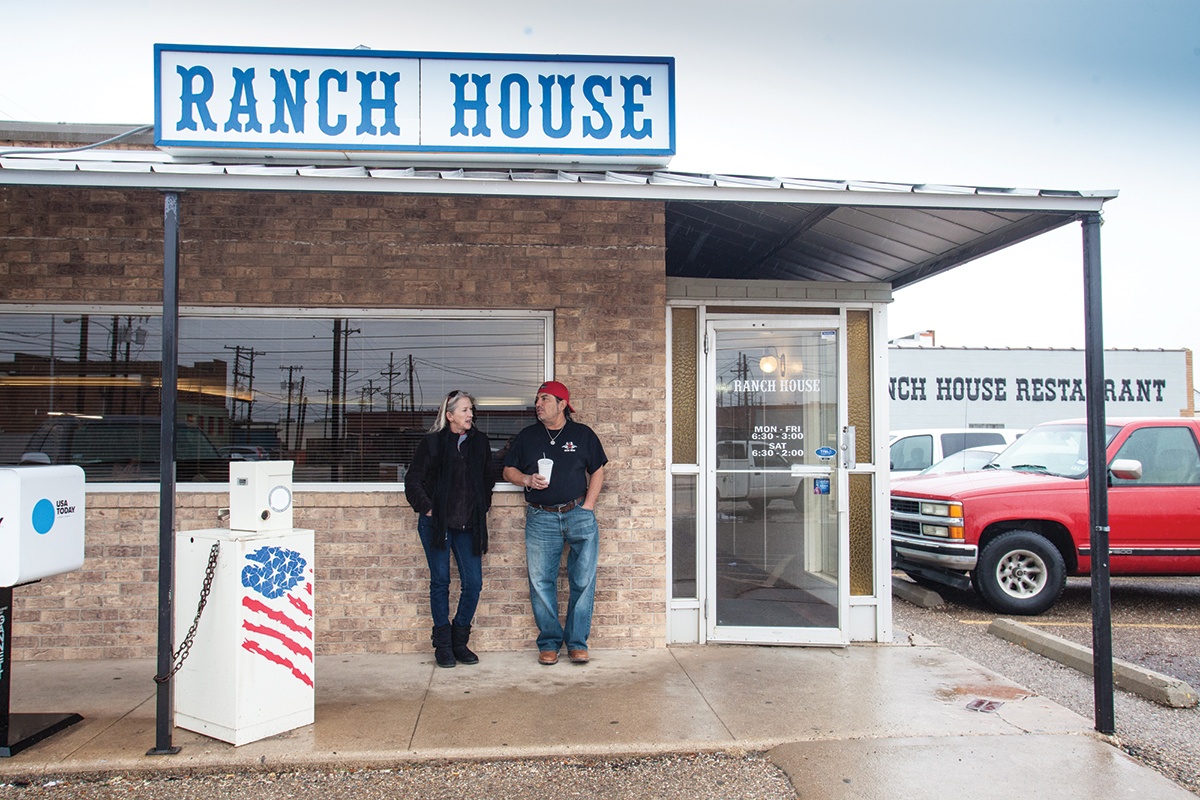
Owner Ralph Musselman says some customers are almost like family.
Russell Graves
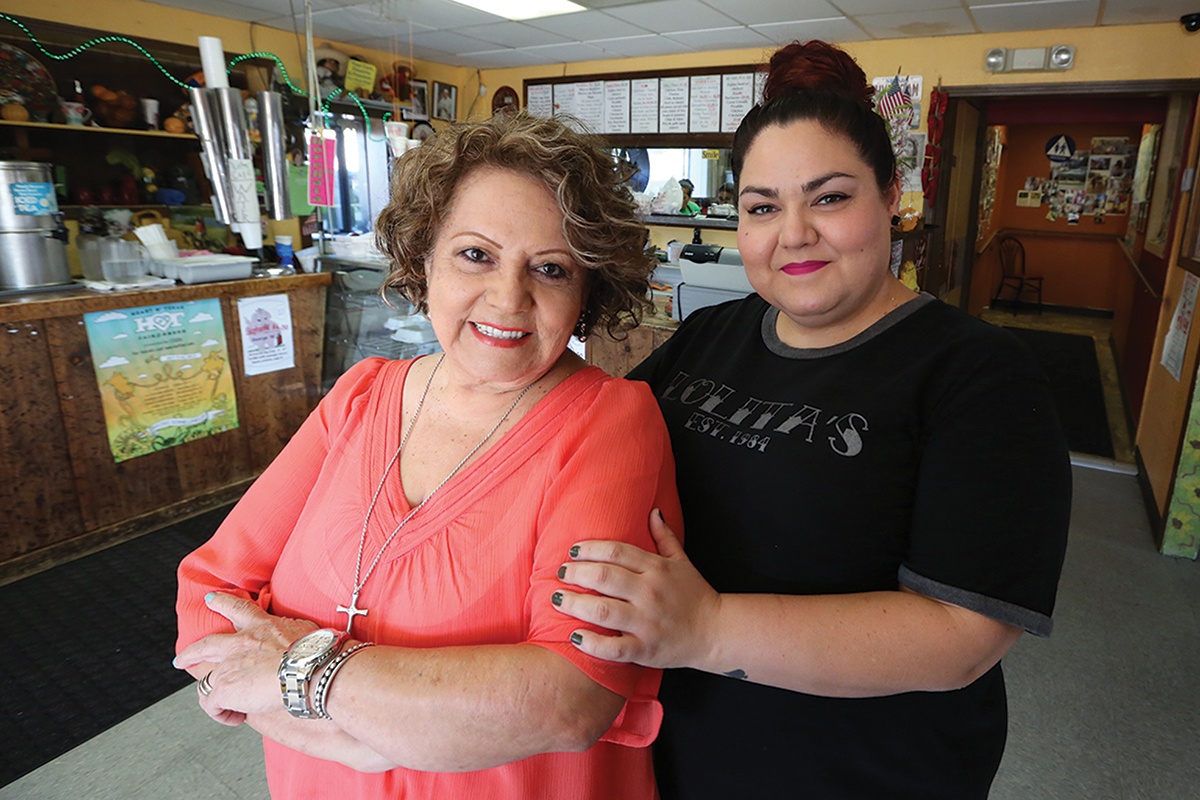
“We have watched so many of our customers grow up,” says Andrea Bergstad, right, with mother Lolita Bergstad.
Rod Aydelotte | Waco Tribune-Herald
